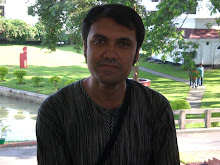http://www.usatoday.com/news/topstories/2007-08-14-3079523328_x.htm
Bangladesh's refugees dream of Pakistan
| E-mail | Save | Print | |
| ||||||||||
Crowded into impoverished shanty camps across Bangladesh, they are remnants of the mass migration that accompanied the break-up of the Indian subcontinent along religious lines at independence from Britain in 1947.
Bangladesh is often the forgotten third country of partition. The departing British lumped what is now Bangladesh together with Pakistan because of their shared Islamic religion. But the two regions are more than 1,600 miles apart on either side of India and have a different languages, cultures and histories.
Bangladesh -- then known as East Pakistan -- revolted and won its independence with India's help in 1971. The nine-month conflict pitted East Pakistan's Bangla-speaking majority against Urdu-speaking Muslims who had fled from India at partition and wanted to remain part of Pakistan.
Calling themselves "stranded Pakistanis," about 500,000 Urdu-speakers decided to depart for Pakistan rather than join newly independent Bangladesh. But in 1993, Pakistan halted the repatriation process, saying it did not have the money or land to house them.
That left some 250,000 refugees and their descendants to languish in 70 government-run camps across Bangladesh. They are not citizens and cannot vote or apply for government jobs.
"I've been dreaming of going to Pakistan for years," said Mosammat Rahima, 50, standing outside the tiny hut she shares with seven other family members. "There they speak my language, Urdu."
Rahima's camp has become another sprawling slum in the capital of Dhaka, a city of 10 million people. Many live without electricity, water or adequate health care. Illiteracy, unemployment and malnutrition are rampant.
"Can you imagine, we have only 150 toilets for 25,000 people of the camp?" says Abdul Jabbar Khan, who has led protests and a media campaign for repatriation to Pakistan.
"Nobody thinks of us, not Bangladesh, not Pakistan," he added. "We know there's no hill of gold for us in Pakistan. But still we want to try our fate there. We aren't accepted here, we'll never be."
Barred from applying for government jobs, many in the camp eke out livings as day laborers or cleaners.
Rahima and her 60-year-old husband often sleep outside when their shack becomes too crowded on muggy nights.
"Do you think we're human beings?" she said. "Even dogs at many homes in this city live in better places."
Bangladesh and Pakistan say they are looking for a solution, though it appears remote.
"Both governments believe that we need to resolve this issue," Iftekhar A. Chowdhury, foreign affairs adviser to Bangladesh's interim government said. "On a recent visit to Pakistan, I raised the issue with my Pakistan counterpart, and he was of the same opinion."
As the years pass with no solution, however, the dream of Pakistan grows increasingly less appealing to younger generations. Many youth now speak Bangla and feel accepting Bangladeshi citizenship would give them a chance at a better life.
"Why shall we call ourselves Pakistanis? This is absurd," says Sahid Ali Babul, 25. "We should be given Bangladeshi nationality, since we were born and brought up here."


No comments:
Post a Comment